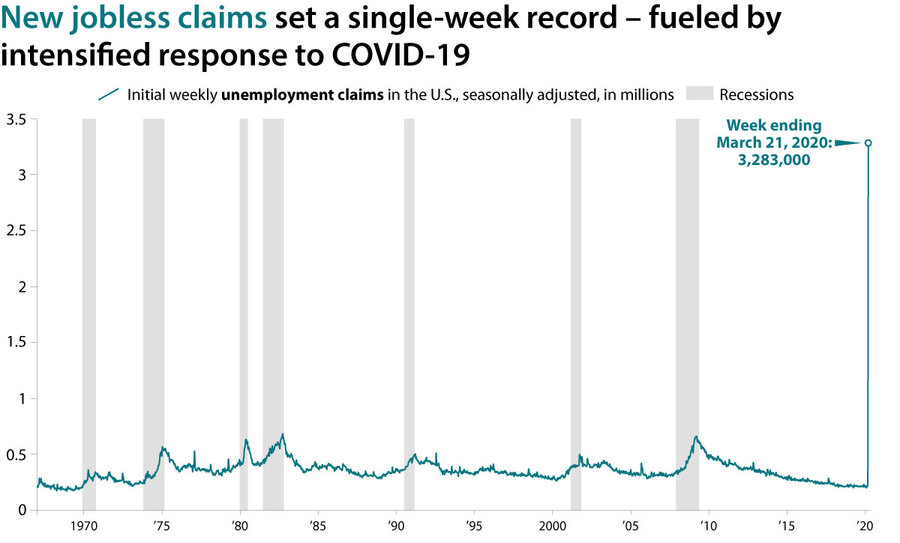Tame the coronavirus, then tackle the economy? A difficult and sensitive debate is emerging over how to get back to “open for business.”
Monitor Daily Podcast
- Follow us:
- Apple Podcasts
- Spotify
- RSS Feed
- Download
 Amelia Newcomb
Amelia Newcomb
Today, we examine the ethical quandaries of weighing the global economy against public health, who governs U.S. lockdown conditions, El Salvador’s preemptive quarantine, a college senior’s reflections on an upended year, and a new installment of comfort films. But we’ll start with some memories of World War II.
The extraordinary changes brought on by the coronavirus have sent me back to family conversations about life during World War II. My grandfather, father, and stepfather served; my mother spoke of volunteer plane spotting and rationing. I decided to ask my stepmother, Nancy, who grew up in upstate New York and now lives in Manhattan, about how understanding the spirit then could help us now.
After all, history can look tidy from a distance. The messiness is there, but it’s eased by our vantage point. But when you don’t know the outcome?
Nancy recalls reports from a family friend, a British refugee whose husband was an officer in North Africa. His grim letters shared that he could see no end in sight. “Because of our friends, and FDR’s chats, and the nightly news, we were very conscious of it all the time,” Nancy says. The uncertainty was palpable. Nancy recalls driving one day with her father and sister as the car radio delivered bad news. The young girls wanted assurance of victory that dad couldn’t provide. “I remember Jill telling me that was the first time it occurred to her that the Allied forces might not triumph,” Nancy says.
But there was the flip side: They helped refugees. They supported donation centers. And on Dec. 8, 1941, the United States went on a full war footing. “In my lifetime, I haven’t seen everyone as united as they were in World War II,” Nancy says. “But now, it’s like what I see in New York. Everyone is in.”











